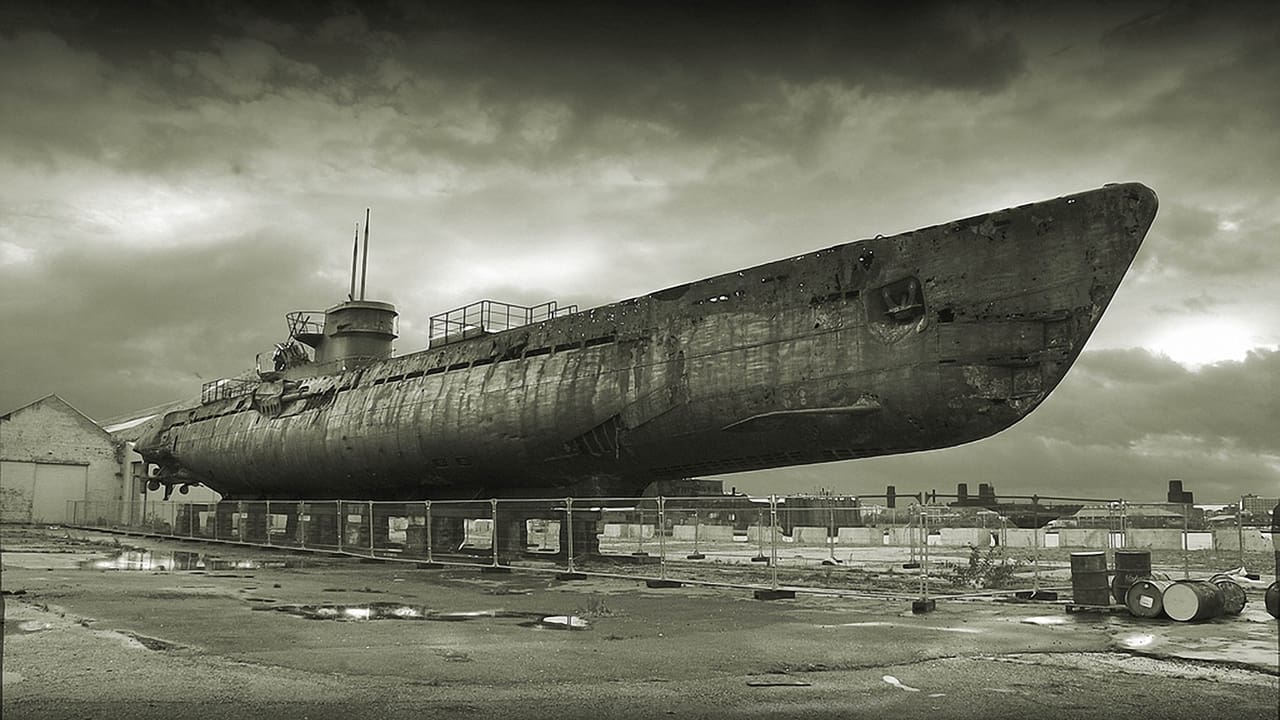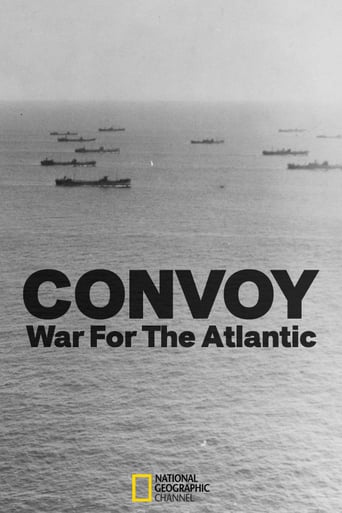CheerupSilver
Very Cool!!!
Marva
It is an exhilarating, distressing, funny and profound film, with one of the more memorable film scores in years,
Kimball
Exactly the movie you think it is, but not the movie you want it to be.
Allissa
.Like the great film, it's made with a great deal of visible affection both in front of and behind the camera.
Robert J. Maxwell
It's an exceptional series, using newsreel footage, reenactments, prudent computer-generated images, and graphics. It deals in some detail with the battle between the German U-boats in the Atlantic during World War II and the Allied countermeasures that eventually turned German patrols into suicide missions.Britain, an island nation, was dependent on necessities like food and war supplies like oil being sent through the shipping lanes from Canada and America. The German commander, Admiral Dönitz realized that if his submarines could cut that lifeline Britain would be starved into submission. The rest of Europe had already fallen to the Nazis. But the admiral began the war with only some forty-two U-boats. At its peak the number would be ten times that many. His pleas for more met with a tepid reception because Hitler was more interested in the image of naval strength projected by the battleship. His battleships didn't get the job done but Dönitz's U-boats almost did.The workhorse of the submarine fleet was the Type 7. It could travel as fast as most cargo ships on the surface, propelled by diesel engines, carried a 3-inch deck gun and secondary armament, and eleven torpedoes. Initial success was great. Two torpedoes sunk an important British aircraft carrier. The crews became elite and were highly decorated and well treated.But the battle for the Atlantic was a kind of tug of war between the submarines and the Allied surface ships. Dönitz had to rely on tactics to adjust to the changes, developing the wolf pack, for instance. The Allies relied on numbers and on rapid advances in technology. First, the British and Canadian escort vessels were equipped with what American's call sonar, which enabled ships to detect submerged U-boats. Later they used radar, enabling them to detect surfaced submarines at a distance of twelve miles. Blessed by Fortune, the British managed to capture a damaged U-boat with a decryption machine called Enigma still aboard, enabling them to decode messages sent to and from the U-boat fleet.Also important was the building of small anti-submarine vessels, the corvettes, modeled on the design of a whaling ship. They were very lively at sea and their crew were generally miserable. The corvettes were slow and poorly armed, good for nothing except dropping depth charges where submarines were detected. Anyone interested in what living conditions were like on a corvette is referred to two feature films, "The Cruel Sea" and "Corvette K 225." The convoys consisted mainly of old cargo ships and tankers. Against a headwind, they made about as much speed as a man walking.In January of 1943, Dönitz mounted the biggest wolf pack attack, fifty-two U-boats and two thousand men, including his own son, against the convoys. Aided by sonar and surface radar, the convoy escorts managed to sink half a dozen U-boats and damage five others. In May, Dönitz lost 1300 men, his son among them. The momentum in the battle had shifted to the side of the Allies and it would stay there.It's a fine program, second only to the Battlefield Series. The narrative deals mainly with the role of the Royal Canadian Navy in the Battle of the Atlantic. There's nothing about the Italian submarine that slipped into Scapa Flow and sank a British battleship, and only a brief allusion to the Murmansk run. Nothing about the scandal of Convoy PQ 17.The survivors' anecdotes are often harrowing, especially those of the U-boat crews. One engineer was trapped in a sunken submarine watching the water creep higher in the compartment and drown his comrades. When someone opened a hatch above him, he slipped through and rose to the surface, and he gives a compelling account of his entire life running through his mind, "as real as you and I are sitting here." He was the only survivor. "War is all hell," said General Sherman, and one imagines death aboard a U-boat to be among the most hellish.
tcordes
"Convoy" is probably the best WWII documentary I've ever seen, and I've seen nearly all of them. After watching about half of episode one, I was hooked, and quickly gobbled up the other three. This series was more compelling than most fiction! The fact all of these events actually transpired just makes it more so. Will the allies finally have the edge in this battle? Will the U-boats ever be stopped?Even the most ardent WWII enthusiast will learn a shipping ton of new facts about this crucial part of the war. And the non-enthusiast who simply likes the war genre will find the effects, footage, and characters captivating. To boot, the series could almost be PG-rated as there is no gore or direct visual bodily violence; a plus for some. That said, there's plenty of explosions and destruction, but like many things naval, you miss the trees for the forest.However, the human side is not lost, as interspersed throughout are myriad snippets from interviews with survivors from all sides of the conflict. Their stories are intriguing: what I wouldn't give to sit down and chat with them for a few hours!For sure Convoy has a Canadian slant, being Canadian-produced. However, unlike some Canadian productions, they don't falsely play up the Canadian contribution to a cheesy level. The Canadian and British contributions to the Atlantic Ocean war are clear to see for all who seek out and watch Convoy. Los!
jimlacy2003
This is an excellent series. A must watch for anyone interested in WW2 history.I've seen some documentaries on this particular area of the war where most of them focused on war ships like the Bismark encounter and other battleships, aircraft carriers, etc. While this one focused almost entirely on German submarines. Focusing on the command by Karl Dönitz, the rise and fall of German U- boat effectiveness, U-boat commander aces, changes in submarine technology, etc. A better fitting title might have been "Kriegsmarine: The German U-boat war for the Atlantic". But not to detract form the series at all. I'm more then happy they took this route.Personally, it filled in a lot of gaps in my understanding of submarines and their roles. I didn't know for example that U-boats were such a large part of Hitlers plan for control of the Atlantic. And the way things were laid out over a time-line of WW2 it places other key events together; like their role (or lack their of) on D-Day, etc.Would probably fill in the gaps and explain a lot of things if you've only seen the fictional 1981 classic movie "Das Boot".It was an all around fascinating and educational watch. The production quality of the series is perfect. Full of expertly reenacted events, interviews of still living survivors (as of 2009'ish) from both sides, and lots of still photographs and videos, etc.Again if you are interested in WW2 history you will want to see this!
taniaaust1
Im very surprised that this hasn't even reached 5 votes yet as I found it an intriguing and informative documentary on a part of World War 2, the convoys, which I'd never heard about.This documentary with great reenactments and some actual clips, tells about the critical moments of the navel campaign and of a war which could of been lost for the English and the Americans. It also includes interviews with those in the navel part of the war.I also really liked this documentary as they interviewed people from both sides of this war, so its a completely unbiased account.Any individual who likes war documentaries, I think will love this four part war series which has been so well done and wasn't a boring war documentary as I do find some to be.

